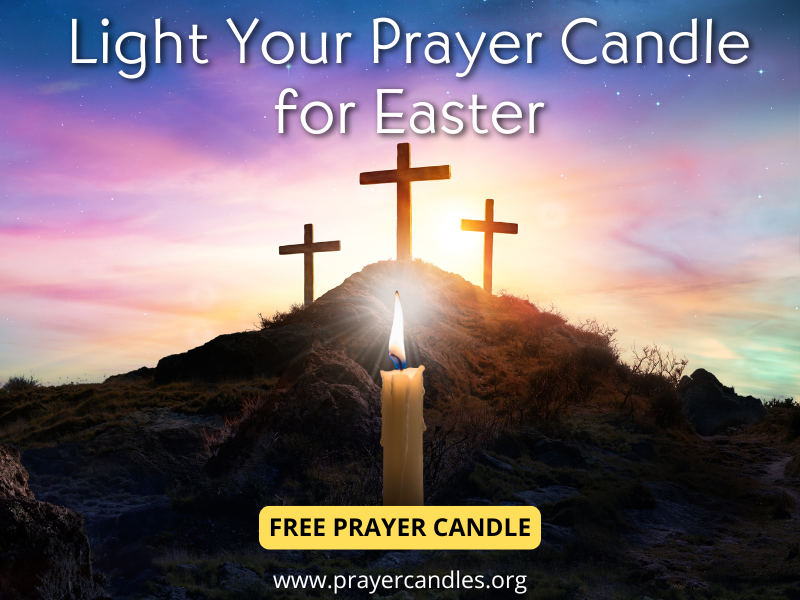Why We Celebrate Both the Birth and the Death of John the Baptizer
This past Tuesday all Bishops, Priests and Deacons wore red while on the Altar during the Holy Sacrifice of the Mass. It stands for the shedding of a Martyr's Blood. We now refer to this Feast as the Passion of John the Baptizer more often than the Beheading of John the Baptizer. However, given the realities we face in this new missionary age of the Church, the actual beheading rushes to the forefront. We are seeing it in our own violent times. That is the fate which this great man suffered for his fidelity to the truth. His witness cries out to all of us.

Highlights
8/30/2023 (1 year ago)
Published in Christian Saints & Heroes
On June 24, the Western Church celebrates the Birth of John the Baptizer. On August 29, we commemorate his death by beheading. Other than the Lord Himself and His Blessed Mother, Mary, John is the only Saint for whom we celebrate both his birth and his death. In a beautiful excerpt from a sermon of St. Augustine on John the Baptizer, the great Bishop of Hippo calls us to pause and reflect on why:
"The Church observes the birth of John as in some way sacred; and you will not find any other of the great men of old whose birth we celebrate officially. We celebrate John's, as we celebrate Christ's. This point cannot be passed over in silence, and if I may not perhaps be able to explain it in the way that such an important matter deserves, it is still worth thinking about it a little more deeply and fruitfully than usual."
Our image of John is as the austere ascetic, the odd fellow who lived in the desert eating an odd diet thundering to Israel about repentance. We forget the joy that was associated with his birth and the happiness that accompanied his prophetic life and vocation. He always pointed the way to Jesus.
So must we in our own age. Only Jesus can save us from what the Apostle Paul calls "the wages of sin" (Romans 6:23).
When we begin to really understand this we will also comprehend the freedom John the Baptizer experienced in both life and death. He simply said yes to who he was born to be and continually said yes to who he was called to become, by following Jesus Christ and pointing the world to Him. He is an example for each one of us; he did indeed prepare the way for each one of us.Ă‚Â
When Our Lady went to visit her kinswoman Elizabeth - she carrying the Incarnate Word and Elizabeth carrying John - the Gospel tells us: "When Elizabeth heard Mary's greeting, the infant leaped in her womb, and Elizabeth, filled with the Holy Spirit, cried out in a loud voice and said: "Most blessed are you among women, and blessed is the fruit of your womb".
"And how does this happen to me that the mother of my Lord should come to me? For at the moment the sound of your greeting reached my ears, the infant in my womb leaped for joy. Blessed are you who believed that what was spoken to you by the Lord would be fulfilled." And Mary said: "My soul proclaims the greatness of the Lord; my spirit rejoices in God my savior" (Luke 1: 41-47).
Living in the first home of the whole human race, his mother's womb, this last Prophet of the Old Testament and First Prophet of the New responded to the arrival of Jesus the Savior with a dance of Joy. St. John the great theologian records in his Gospel where John the Baptizer explained the reason for his joy:
"The one who has the bride is the bridegroom; the best man, who stands and listens for him, rejoices greatly at the bridegroom's voice. So this joy of mine has been made complete. He must increase; I must decrease" (John 1:29 - 30). John the Baptizer was a man of Joy because he was a man of true humility!
He was a man who understood that life wasn't all about him. He emptied himself willingly and was thus able to reveal Jesus to others. He was the "best man" at the wedding. His humility opened a space within him for true joy to take root and set him free!
John is a sign of contradiction for this age, drunk on self-worship and lost in narcissistic self-absorption. He points to the path to true freedom, living a lifestyle of self-emptying." He must increase and I must decrease". This leads to ongoing conversion; becoming a new creation (2 Cor. 5:17).
John is a man to be imitated in both life and death. We learn from him to live our lives as joyful penitents; ever aware of our utter dependence on God's grace. It is sin which leads us into slavery and takes away our joy. Only by being freed from its entanglement can we become happy (See, Romans 6: 6, 7 and Gal. 5:1).Ă‚Â John still points to Jesus, in both his birth and his martyr's death. That is why we celebrate both.
Two millennia after his illustrious mission as the harbinger of Christ, we readily accept, as we should, his prophetic role in the revelation of God's plan of salvation and the advent of the Gospel. Yet, how might we have seen John if we had been his contemporaries? Would we have so readily accepted him, or might we have rejected him as a fanatic or extremist?
Let's face it: John was peculiar. He dressed like a caveman, ate insects and railed at politicians for their fornication and marital infidelity. He sequestered himself in the desert where he tirelessly initiated converts fleeing the sinful pollution of the cities. He proclaimed the end if the people failed to repent and he used vivid and mystical imagery. In the popular "media'' of the day, he was portrayed as a nut and dangerous fanatic.
By standing apart, boldly calling out evil doers without regard to their prestige or rank, by challenging his own co-religionists, John made himself terribly unpopular. At the end, he publicly and relentlessly criticized the personal behavior of the most powerful politician in Judea, Herod. As a result, he was arrested and executed as a traitor.Ă‚Â
Today we tend to reject those who similarly publicly decry sin and heresy. Street preachers, prophets, and clerics who confront sinful policies, bad behavior, and false ideologies are decried as troublemakers, fanatics, and dangerous "extremists".
St. John the Baptizer was a simple man, not a member of the elite. He was stirred by conscience and the Holy Spirit to call a spade a spade and throw convention to the wind. He paid dearly for it. As Christians, we inherit the abundant fruit of his daring and liberating choices. The way he exercised the great gift of his human freedom instructs us in exercising our own.
The Lord desires our human flourishing and happiness. He wants us to be truly free. He invites us to choose Him over our own selfish pursuits. In that continual choosing, we are freed and made new.Ă‚Â In Jesus Christ, we have been given all that we need to overcome the obstacles which impede us.
Because of sin, our freedom was fractured. Through grace given by the splint of the Cross, it is healed. We are capacitated - made capable of choosing - what is true and good and beautiful. In those choices we become the men and women the Lord wants us to become as we are recreated in Christ.
Notice the language with which we discuss eternal life and heaven. We speak of receiving the "beatific vision" when we finally stand in His presence and enter into the fullness of communion.Ă‚Â The word "beatitude" actually means happiness!
Living in the Lord will make us happy. Not only in the life to come but beginning in this life. Too often we associate repentance with some kind of wrong-headed self-hatred. To the contrary, for those who have been schooled in its lessons like John the Baptizer, the way of voluntary penitence and conversion becomes the path to true joy.
Saint John Paul II wrote frequently about human freedom. In one of his letters of instruction on the Christian family, he wrote these insightful words: "History is not simply a fixed progression toward what is better - but rather, an event of freedom. Specifically, it is a struggle between freedoms that are in mutual conflict: a conflict between two loves - the love of God to the point of disregarding self and the love of self to the point of disregarding God" (John Paul II, Christian Family in the Modern World, n. 6).
This conflict between two loves, this "event of freedom", is played out on a daily basis. The recurring questions of Eden echo in our personal histories. How will we exercise our own human freedom? At which tree will we make our choices?
Will it be the tree of disobedience, where the first Adam chose against God's invitation to a communion of love, or the tree on Golgotha's hill where the second Adam, the Son of God, brought heaven to earth when He stretched out His arms to embrace all men and women, bearing the consequences of all their wrong choices and setting them free from the law of sin and death? (Romans 8:2). John the Baptizer was one of the most free among us because he knew the answer.
Let me conclude with some words from the Catechism of the Catholic Church: "Freedom is the power, rooted in reason and will, to act or not to act, to do this or that, and so to perform deliberate actions on one's own responsibility. By free will, one shapes one's own life. Human freedom is a force for growth and maturity in truth and goodness; it attains its perfection when directed toward God, our beatitude".
"As long as freedom has not bound itself definitively to its ultimate good which is God, there is the possibility of choosing between good and evil, and thus of growing in perfection or of failing and sinning. This freedom characterizes properly human acts. It is the basis of praise or blame, merit or reproach". "The more one does what is good, the freer one becomes. There is no true freedom except in the service of what is good and just. The choice to disobey and do evil is an abuse of freedom and leads to "the slavery of sin" (CCC 1731 - 1733).Ă‚Â
The choice is ours. Just as it was with John the Baptizer. John shows us the way to give away our freedom in love - and then truly find it made again - new in the One who truly sets us all free, Jesus the Christ (John 8:36).
Join the Movement
When you sign up below, you don't just join an email list - you're joining an entire movement for Free world class Catholic education.

-

- Stations of the Cross
- Easter / Lent
- 5 Lenten Prayers
- Ash Wednesday
- Living Lent
- 7 Morning Prayers
- Mysteries of the Rosary
- Litany of the Bl. Virgin Mary
- Popular Saints
- Popular Prayers
- Female Saints
- Saint Feast Days by Month
- Pray the Rosary
The Way of the Cross: A Good Friday Reflection on Christ’s Final Journey
The Many Reasons Why We Call it Good Friday
“It Is Finished”: The Silence of Good Friday and the Triumph of the Cross
Daily Catholic
 Daily Readings for Sunday, April 20, 2025
Daily Readings for Sunday, April 20, 2025St. Marian: Saint of the Day for Sunday, April 20, 2025
 Children's Prayer For Parents: Prayer of the Day for Sunday, April 20, 2025
Children's Prayer For Parents: Prayer of the Day for Sunday, April 20, 2025 Daily Readings for Saturday, April 19, 2025
Daily Readings for Saturday, April 19, 2025 St. Alphege: Saint of the Day for Saturday, April 19, 2025
St. Alphege: Saint of the Day for Saturday, April 19, 2025- Stewardship Prayer: Prayer of the Day for Saturday, April 19, 2025
![]()
Copyright 2025 Catholic Online. All materials contained on this site, whether written, audible or visual are the exclusive property of Catholic Online and are protected under U.S. and International copyright laws, © Copyright 2025 Catholic Online. Any unauthorized use, without prior written consent of Catholic Online is strictly forbidden and prohibited.
Catholic Online is a Project of Your Catholic Voice Foundation, a Not-for-Profit Corporation. Your Catholic Voice Foundation has been granted a recognition of tax exemption under Section 501(c)(3) of the Internal Revenue Code. Federal Tax Identification Number: 81-0596847. Your gift is tax-deductible as allowed by law.




 Daily Readings for Sunday, April 20, 2025
Daily Readings for Sunday, April 20, 2025 St. Marian: Saint of the Day for Sunday, April 20, 2025
St. Marian: Saint of the Day for Sunday, April 20, 2025 Children's Prayer For Parents: Prayer of the Day for Sunday, April 20, 2025
Children's Prayer For Parents: Prayer of the Day for Sunday, April 20, 2025 St. Alphege: Saint of the Day for Saturday, April 19, 2025
St. Alphege: Saint of the Day for Saturday, April 19, 2025

